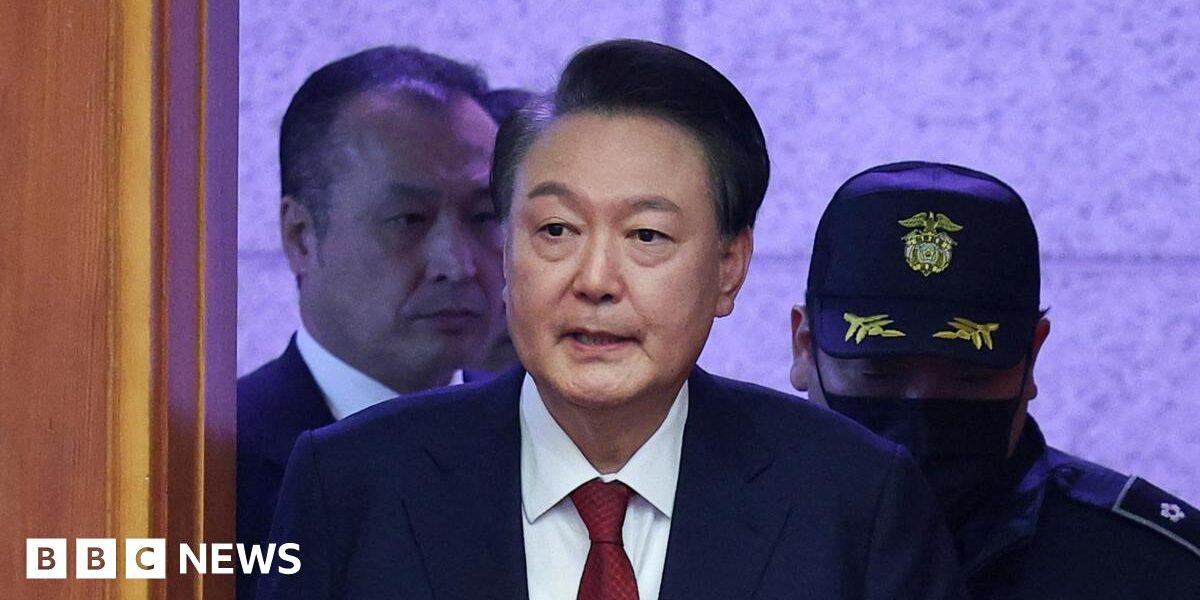Separately, the Constitutional Court has begun deliberations on whether to formally dismiss Yoon as president or reinstate him.
The impeached president has largely refused to co-operate with the criminal investigation over the martial law declaration.
Yoon is set to stand trial along with his former defence minister and senior military commanders, who are accused of helping him plan and carry out the attempt to seize total power.
In an unprecedented televised announcement on 3 December, Yoon said he was invoking martial law to protect the country from “anti-state” forces that sympathised with North Korea.
At the time, the embattled leader was in a deadlock over a budget bill, dogged by corruption scandals and several of his cabinet ministers were under investigation.
The military announced all parliamentary activity was suspended and sought to imposes controls on media outlets.
The opposition’s Democratic Party leader Lee Jae-myung urged people to protest at the National Assembly and asked his fellow lawmakers to immediately vote to repeal the order.
Less than two hours after Yoon’s declaration, 190 lawmakers who gathered – including some from the president’s party – voted unanimously to block it.
Soldiers equipped with rifles were seen entering the parliament building through smashed windows as a dramatic confrontation ensued.
Thousands of civilians gathered in front of the assembly and tried to block the soldiers.
Yoon was was impeached by parliament and suspended from his duties on 14 December.
The affair has triggered South Korea’s worst political crisis in decades and has polarised the country.
Many of his hard-line supporters have rallied around him. On Friday, tens of thousands gathered to protest, demanding he be released and returned to office.
If Yoon is removed from office, a presidential election would be held within 60 days.
The prosecutors’ office did not immediately respond to requests for comment.





